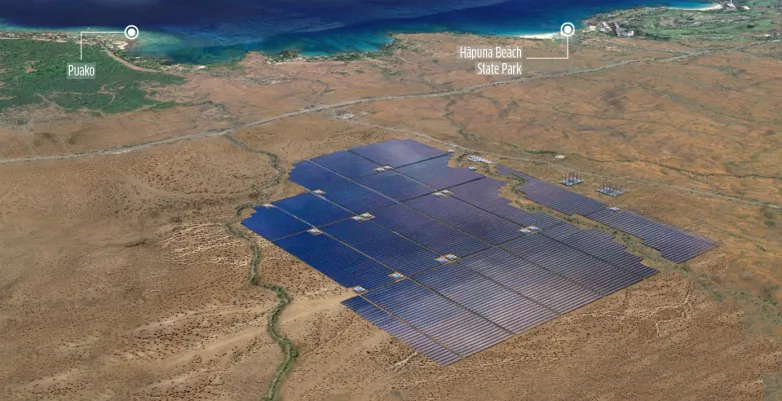ENGIE's tender-winning Guam solar-plus-storage project cancelled
- ENGIE has pulled out of a large-scale solar-plus-storage project contract in the Western Pacific US island territory of Guam.

The French multinational energy team had in 2019 won contracts to supply 50MWp of solar PV with 300MWh of battery storage in a renewable resource tender hosted by state electrical utility Guam Power Authority.
However, according to NHOA, the system integrator acquired to supply the battery power storage system (BESS), Guam Power Authority has actually chosen to cancel the tender after ENGIE claimed the project would not be viable if constructed in today's market conditions under the contract costs agreed 3 years back.
ENGIE notified NHOA of the Guam Power Authority's action on 21 July, NHOA stated in a presentation of its H1 2022 audited economic results, released on 28 July.
ENGIE had submitted the most affordable quote in the 3rd round of the Micronesian Island's competitive renewable tender programme to earn the right to a 20-year power purchase agreement (PPA).
It had actually designated its storage space subsidiary, ENGIE EPS, to supply the turnkey BESS which would be outfitted with Samsung SDI batteries.
As regular readers of the website might recognize, ENGIE EPS then transformed hands as Taiwan Cement Corporation (TCC) became the majority shareholder of the company, altering its name to NHOA.
NHOA stated its energy storage space business line achieved EBITDA breakeven in the first fifty percent this year, reporting EUR1.8 million (US$ 1.84 million) positive EBITDA. Chief executive officer Carlalberto Guglielminotti stated in a webcast that this beat the company's target of breaking even by the end of the year.
" I am not aware of any other pure player in energy storage that has gotten to breakeven in history and worldwide. However definitely, analysts and also financiers that joined the call can correct me if I'm wrong,"
As mentioned in Energy-Storage. news' protection when the unaudited figures were released, power storage space accounted for EUR72.7 million (US$ 74.51 million) of the business's worldwide revenue and income overall of EUR82.2 million for the half-year.
The Guam project had however made up nearly all of NHOA's contracts protected in its power storage space company. NHOA claimed that as a result, from the following noted duration, it will certainly no more reveal 'Contracts Secured' or consider it a performance metric.
NHOA additionally contracted to ENGIE's cancelled Hawaii project
Regular visitors of this site will likewise know it's not the first time ENGIE has actually pulled out of a large-scale island renewables-plus-storage project with NHOA.
Last October ENGIE went down a project in Hawaii, which once again it had won a tender for with the regional utility. Poised to sign a 25-year PPA with Hawaiian Electric (HECO) for Puako, a 60MWp solar PV plant with 240MWh BESS, ENGIE cancelled it.
NHOA would have supplied the BESS and also claimed at the time it was "dissatisfied" with its former parent firm's decision, with ENGIE citing solar market headwinds as well as high grid connection prices amongst its reasons.
The going down of the Guam project might come as a bigger surprise however, because ENGIE had actually fought a battle to maintain it: in 2020 after the tender win was introduced designer GlidePath, an unsuccessful bidder in the process, had lodged an allure with bodies including the regulative Guam Public Utilities Commission (GPUC).
GlidePath's problems included an alleged non-compliance with the solicitation's technological requirements in ENGIE's bid. COVID-19 after that postponed that whole allures process before at some point rulings were made in ENGIE's favour in court in January this year.
On the other hand, NHOA's presentation recently mostly reiterated aspects of the company's efficiency currently covered in its unaudited results release, yet NHOA also offered income guidance in the range of EUR140 million to EEUR160 million for FY2022 throughout its 3 business lines: power storage space, e-mobility and EV quickly billing infrastructure.
This was up from previous support of EUR100 million to EUR150 million.
Also read

